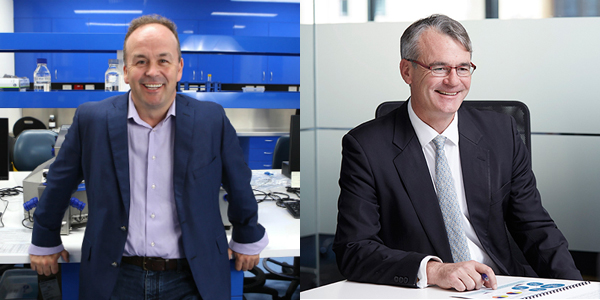Quantum leap for heart and lung med-tech investments
Quantum is an Australian medical device fund which draws on a global network of key medical leaders with a lot of experience in developing medical devices, including an artificial heart. The fund is close to finalising its first raising.
It is the insights from the group of medical opinion leaders that will lead to the funding of the development of future medical technology in the heart and lung space, including COVID-19 related health issues, according to Nicholas Allen, the principal of Allen Partners, a fund manager and third-party marketer. He expects to raise ablut $200 million shortly for Quantum’s first fund closing and subsequently more from Australia and New Zealand investors for future development.
The medical driving force behind Quantum is Professor John Fraser, an intensive care specialist who leads the first ever International Centre of Research Excellence in end stage heart and lung device development. Based in Brisbane, working across Prince Charles and St Andrews hospitals, he also founded the Critical Care Research Group. Through this work Professor Fraser has grown a vast and successful global network of clinicians, engineers, and scientists from 50 countries and 350 hospitals around the world.
Med-tech’s recent growth has been prompted by several factors, and the COVID-19 pandemic has highlighted its importance and potential even further. Nicholas Allen and David Vella (ex-First State Super), of Allen Partners, who are overseeing the fund raise, noted increased investor interest including:
- Global growth in medical costs, which mean that pressure on government budgets is shifting focus to medical technologies and promoting the advancement of individuals to have greater involvement in their healthcare
- Rapid technology advancement is creating new options in what is achievable
- Breakthrough technologies are finding ready acceptance in the market, and
- A mature, global cohort of medical companies is constantly looking for opportunities to achieve market leadership and is prepared to pay for involvement in new opportunities.
Fraser says: “When combined across a portfolio which is managed on a ‘fast fail’ or ‘rapid progression’ methodology in the invested technologies, this allows for the ability to manage investment risk whilst delivering attractive returns.”
Allen says: “Innovations are now being targeted by a sophisticated specialist medical technology investment fund, Quantum, with its focus on early to mid-stage of development and its capacity to enter, then exit, at attractive valuations.
The work being done on COVID-19 by the Critical Care Research Group, while not part of Quantum, highlights the future importance of med-tech and the benefits of a global network of leaders. As Professor Fraser explains, “This disease has never been seen before and no-one knows how to treat it. When your family member arrives into our ICU, we need as much data as possible to help us in data – free zone”. However, they are gathering what he believes the biggest database of ICU (intensive care unit) information globally and will be looking to use new technology to put the pieces of the jigsaw together for medical researchers and practitioners.
For instance, they have co-created a “medical toolkit” with Amazon Web Services to allow the more rapid data ingestion from hospital to a dashboard available globally to clinicians on the front line. It is a vocally operated service akin to Amazon’s ‘Alexa’, or ‘Bruce’ to reflect the firm’s Australian heritage. It can upload data within a few minutes when previously the same process may have taken many hours.
Similarly, IBM is helping to develop ways to use advances in machine learning, particularly to show causal relationships, not just correlations, between behaviours and outcomes. “The global power of this data is available in the Dr’s pocket through a real time dashboard. This can help guide treatment based on up to the minute information.”
Fraser says: “It was clear that the financial markets would have to hit pause and in doing so is now evaluating investments in a different way. The COVID-19 crisis highlights the essential nature of medical technology in worlds’ biggest healthcare challenges. Medics and med -tech experts have realised this for some time now.”
Prior to the COVID-19 pandemic, the suite of products that Quantum were assessing included early warning for heart attack and seizures, and home-based systems which would allow earlier treatment and reduced health problems from a number of heart and lung diseases.
One of their corner stone devices can be used as a needle free alterative for the adrenaline delivery for severe allergy, such as the Epipen. Fraser says “No parent likes giving a distressed child a needle – least of all when they are struggling to breathe. Similarly, in cardiac arrest – every second lost before blood starts pumping again means the risk of long-term brain damage rises exponentially.” It was this potential that saw QIC invest in the adrenalin device.
The Quantum investment fund is being run by investment professionals, with John Corbett as chair of the investment committee, Mark Phillips as chief executive, and Sonia Barber as chief legal officer. Corbett has had more than 30 years’ experience as a financier with risk, governance and investment expertise, Phillips has more than 30 years in funds management. Barber has experience in corporate transactions and international law.
– G.B.










